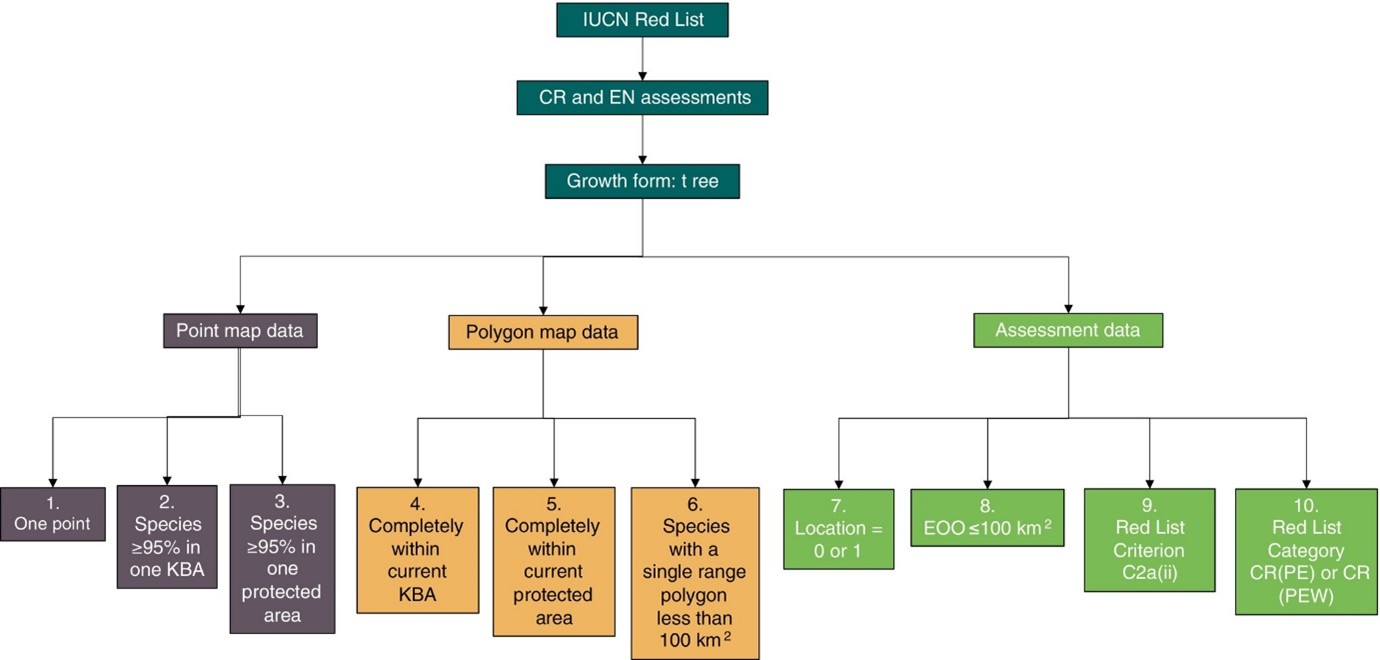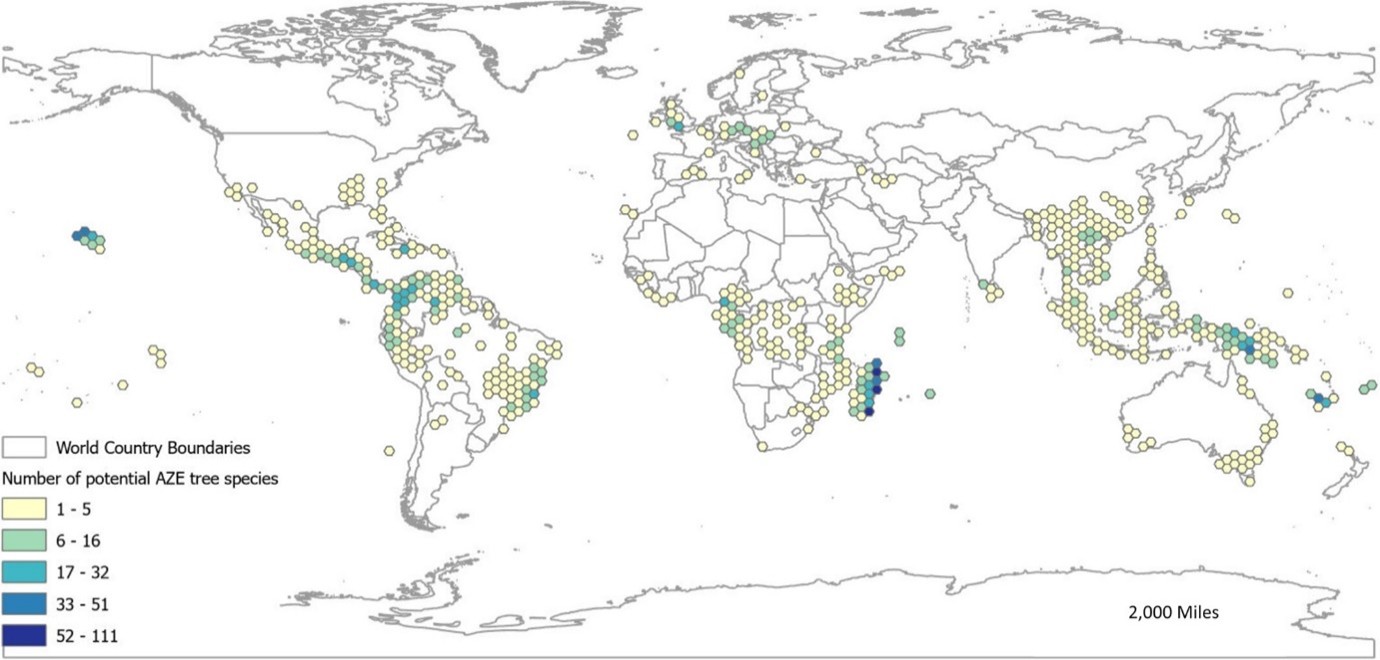New Publications: Methodology for identifying potential Alliance for Zero Extinction (AZE) tree species on a global scale
-
Region
Global -
Programme
Global Tree Specialist Group -
Topic
Tree Conservation -
Type
News
Published: September 2024
Summary: Alliance for Zero Extinction (AZE) sites, a subset of KBAs, has published a new methodology for tree species on a global scale
Alliance for Zero Extinction (AZE) sites, a subset of KBAs, contain ≥95% of the population of highly threatened species. Currently, only 47 tree species have been identified using the AZE criteria. The Global Tree Assessment, assessing the extinction risk of the world’s tree species, has enabled trees to be incorporated into KBA and AZE sites. A small group from Botanic Gardens Conservation International and IUCN have recently published a methodology to utilise data from the IUCN Red List to identify potential AZE species of trees (Davies et al., 2024). This 10-part methodology identified 2,909 tree species as potential AZE species across the world, representing at least 5% of described tree species. As further tree species are assessments are published on the IUCN Red List, this methodology will be important for identifying potential AZE species. The methodology can be applied and adapted to any taxa on the IUCN Red List. This analysis serves as a prioritization mechanism for identifying species in urgent need of conservation action to prevent extinctions.

It is hoped that by making the methodology and initial results for tree species available this analysis can feed into national KBA identification efforts. The publication of the species lists identified using this methodology ensures highly restricted and threatened tree information is available for future conservation planning to prevent extinctions. A supporting table containing the list of potential AZE tree species, is available to download from the publication page.

The open access article can be found here.